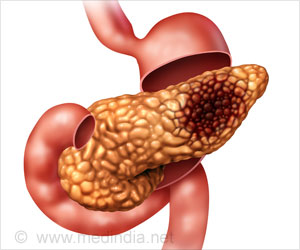Highlights: cfDNA provides non-invasive insights into gene regulation, tissue origin, and disease states, aiding ca
Vous n'êtes pas connecté
- English
- Français
- عربي
- Español
- Deutsch
- Português
- русский язык
- Català
- Italiano
- Nederlands, Vlaams
- Norsk
- فارسی
- বাংলা
- اردو
- Azərbaycan dili
- Bahasa Indonesia
- Հայերեն
- Ελληνικά
- Bosanski jezik
- українська мова
- Íslenska
- Türkmen, Түркмен
- Türkçe
- Shqip
- Eesti keel
- magyar
- Қазақ тілі
- Kalaallisut ; kalaallit oqaasii
- Lietuvių kalba
- Latviešu valoda
- македонски јазик
- Монгол
- Bahasa Melayu ; بهاس ملايو
- ဗမာစာ
- Slovenščina
- тоҷикӣ ; toğikī ; تاجیکی
- ไทย
- O'zbek ; Ўзбек ; أۇزبېك
- Tiếng Việt
- ភាសាខ្មែរ
- རྫོང་ཁ
- Soomaaliga ; af Soomaali
 Maroc - MEDINDIA.NET - Medindia Health News - 19/Sep 22:02
Maroc - MEDINDIA.NET - Medindia Health News - 19/Sep 22:02
Role of Cell-Free DNA in Fetal Aneuploidy Detection
Cell-free DNA (cfDNA) is a non-invasive method for detecting fetal aneuploidies, such as Down syndrome, during pregnancy.
Articles similaires
Cell-free DNA: A Non-Invasive Cancer Detection
Cell-free DNA can be used for non-invasive cancer detection and disease monitoring to enhance personalized medicine.
20-year-old wants to help others after exposure to drug in the womb leaves him with NAS
Wahid Leeman was born with neonatal abstinence syndrome (NAS), a condition that happens when an unborn child is exposed to opioids and becomes...
Early Detection of Pancreatic Cancer Using Liquid Biopsy
Pancreatic incidentalomas can be detected in their early stage using a less invasive method to provide proper prognosis and treatment for patients.
Researchers aim to streamline cancer detection with new method for liquid biopsies
A University of Rochester, USA, research team is reporting a new way to detect cancer cells with a “liquid biopsy” that’s designed to be...
AI-Driven Liquid Biopsy Enhances Early Detection of Ovarian Cancer
A breakthrough AI-powered liquid biopsy combining cell-free DNA and protein biomarkers improves early detection of ovarian cancer, aiding in...
AI-Driven Liquid Biopsy Enhances Early Detection of Ovarian Cancer
A breakthrough AI-powered liquid biopsy combining cell-free DNA and protein biomarkers improves early detection of ovarian cancer, aiding in...
Quantum Illumination Lights up Potential Path to Medical Imaging And Radar That Can Operate in Noisy Environments
Insider Brief In a new study, researchers demonstrate that quantum illumination (QI) — a method leveraging quantum entanglement to enhance detection...
Researchers develop a new method for accurately detecting hydrogen with high sensitivity
Hydrogen gas is a promising energy source with several advantages—it is lightweight, storable, energy-dense, and environmentally friendly compared...
Early Detection of Pancreatic Cancer Using Liquid Biopsy
Pancreatic incidentaloma is a lesion in the pancreas that is detected incidentally during the imaging scans done for other conditions. h2Liquid
Les derniers communiqués
-
Aucun élément







